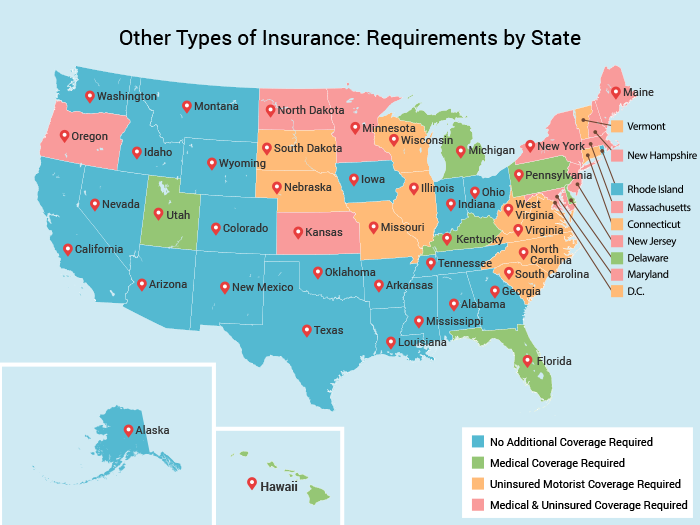Table of ContentsGetting My How Whole Life Insurance Works To WorkThe What Is The Difference Between Whole Life Insurance And Term DiariesWhich Is Better Term Or Whole Life Insurance? for BeginnersThe Best Strategy To Use For How To Pass Life Insurance Medical Exam
A life insurance coverage policy is an agreement with an insurance provider. In exchange for premium payments, the insurance coverage business provides a lump-sum payment, called a survivor benefit, to recipients upon the insured's death. Usually, life insurance coverage is selected based upon the needs and objectives of the owner. Term life insurance normally provides protection for a set period of time, while long-term insurance, such as whole and universal life, supplies life time coverage.
1 There are numerous ranges of life insurance. Some of the more typical types are talked about below. Term life insurance is designed to offer monetary protection for a specific duration of time, such as 10 or twenty years. With conventional term insurance coverage, the premium payment quantity remains the exact same for the coverage period you choose.
Term life insurance is usually less costly than long-term life insurance coverage. Term life insurance profits can be utilized to change lost prospective income throughout working years. This can provide a safety net for your recipients and can likewise assist ensure the household's monetary goals will still be metgoals like paying off a home mortgage, keeping a company running, and spending for college.
Universal life insurance is a type of irreversible life insurance designed to offer lifetime protection. Unlike entire life insurance coverage, universal life insurance policies are versatile and might enable you to raise or lower your premium payment or coverage quantities throughout your life time. Additionally, due to its life time protection, universal life generally has higher premium payments than term.
Another typical usage is long term earnings replacement, where the requirement extends beyond working years. Some universal life insurance coverage product designs concentrate on supplying both survivor benefit protection and building money value while others focus on providing guaranteed death benefit coverage. Whole life insurance coverage is a type of long-term life insurance coverage developed to offer life time protection.
Things about What Does Whole Life Insurance Mean
Policy premium payments are normally repaired, and, unlike term, whole life has a money worth, which operates as a cost savings element and might collect tax-deferred over time. Whole life can be used as an estate planning tool to assist preserve the wealth you prepare to move to your recipients. Income replacement throughout working years Wealth transfer, income protection and some designs focus on tax-deferred wealth build-up Wealth transfer, preservation and, tax-deferred wealth build-up Created for a specific duration (typically a variety of years) Versatile; usually, for a lifetime For a life time Generally more economical than long-term Usually more pricey than term Typically more expensive than term Generally repaired Flexible Normally set Yes, typically income tax-free Yes, usually earnings tax-free Yes, usually earnings tax-free No No2 No No Yes Yes Yes, Fidelity Term Life Insurance Coverage3 Yes, Universal Life Insurance coverage, mostly focused on survivor benefit protection No, conventional Whole Life Insurance is not currently used Insurance providers use rate classes, or risk-related categories, to identify your premium payments; these categories don't, nevertheless, affect the length or amount of protection.
Tobacco use, for instance, would increase risk and, therefore cause your premium payment to be higher than that of someone who does not utilize tobacco.

So you have actually got your house and automobile insurance policies established and crossed off your list. However what about life insurance? If you have not navigated to it yet, you're not alone: Last year, only 60% of Americans had some type of life insurance coverage in place.1 Possibly getting life insurance is currently on your radar.
So here's what you need to learn about life insurancehow it works, what it costs, and which type is ideal for you (what is the difference between whole life and term life insurance). Life insurance coverage is an arrangement between you and an insurance coverage company that, in exchange for your month-to-month payments, the insurance company will pay an amount of money to your enjoyed ones when you pass away.
However focus on this: You purchase life insurance coverage not due to the fact that you're going to pass away but due to the fact that those you like are going to liveand you want them to be economically protected after you're gone. Life insurance can cover loss of earnings, funeral service expenses, financial obligation and other financial requirements that may turn up after you die.
6 Simple Techniques For What Is The Difference Between Whole And Term Life Insurance
Checking out a life insurance coverage contract can feel like the most dull thing worldwide, right? However you truly just require to understand a few typical life insurance terms to assist you comprehend how it works: the contract between you and the insurer the month-to-month or annual payments you make to own the insurance plan the owner of the policy, which would typically be you (the one insured), however you might buy a policy for another individual the cash offered when you pass away individuals you select to receive the survivor benefit of your policy (like your spouse or children, but it can be anyone you name) In a nutshell, once you (the insurance policy holder) begin paying your premiums, the insurance business ensures they'll pay the death advantage to your recipients when you pass away.

There are two primary kinds of life insurance: one that lasts for a set variety of years (term life insurance) and one that lasts through your whole life (irreversible life insurance). Term life insurance supplies coverage for a specific quantity of time. If you die at any time throughout this term, your beneficiaries will get the survivor benefit from the policy.
Long-term life insurance coverage lasts throughout your whole lifetime. It comes in the form of whole life, universal life or variable life insuranceeach differing somewhat from the other. Besides the insuring-your-life part, long-term insurance adds an investing-your-money piece to your policy called cash worth. The insurance provider takes a piece of your premium to start an investment account.
Almost everybody requires life insurance. No matter what stage of life you're at, life insurance comprises a fundamental part of your financial security. Let's take a look to see where you may suit: You may have some charge card and student loan financial obligations that will need to be paid after death.
And if you have actually registered for a group life insurance coverage plan through your company, there might not be an urgent need to get your own policyyet! Congratulations! You've simply started your new life together, which indicates you're there for one another through thick and thin. You must both have a life insurance plan in location.
8 Simple Techniques For What Type Of Insurance Offers Permanent Life Coverage With Premiums That Are Payable For Life
Get enough life insurance to make certain they're taken care of. If you have kids, both you and your partner need to be covered, even if one of you does not work outside of the home. The lack of a stay-at-home moms and dad would significantly impact the family budget plan. Child care costs aren't cheap nowadays.
Trust usyou want (and need) this peace of mind. At this moment, you might currently have substantial retirement savings in location. You might even be well on your way to ending up being self-insured and not need any life insurance. That's a terrific location to be! However let's state you're still settling your home and trying to contribute to your retirement savings.